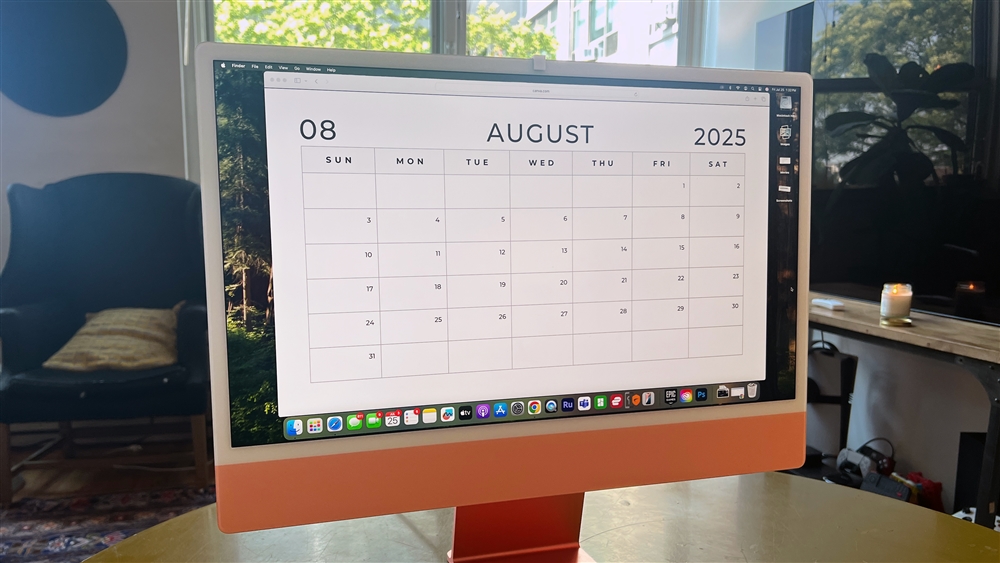This Week in AI: Who Exactly is Using AI at Work?
For Feb. 28, 2025: Amazon upgrades Alexa, Apple promises $500 billion in US investments including AI, Meta spends billions more in AI, NVIDIA continues growing.News
Sometimes it can feel like artificial intelligence is everywhere, but it turns out not as much as we think.
A new survey by Pew Research Center found that a majority of the 5,273 US workers it questioned either rarely use or never use AI chatbots at work, and that in fact relatively small shares of workers say that have. Only 9% of respondents said they use AI chatbots every day or a few times a week, and 7% said they use the technology "a few times a month."

Further, Pew said, the most likely group of people who interact with AI are workers age 18-29, and people with postgraduate degrees.
Still, more than half of workers say they're worried about the future impact of AI in the workplace, with nearly a third saying they expect it will lead to lower job opportunities.
"American workers have mixed feelings about how this technology will affect jobs in the future," Pew wrote.
The new data sheds some light on exactly how much AI is transforming our lives. Though it is a discussion topic, and for some people even a source of anxiety, it isn't being broadly used quite yet. (Or, one could argue, if it is being used, people don't know it.)
Pew said that of the workers who said they do use AI chatbots, most relied on them for research or to find information about a specific topic. This is particularly fascinating because AI chatbots tend to hallucinate, presenting made up details as sincere facts.
A little more than half also said they used these tools for editing written content, and a little under half said chatbots help them create new drafts. Only 27% said they use it to analyze data or write computer code, and 21% said they use it to edit images or videos.
Amazon upgrades Alexa
Amazon's Alexa voice assistant arguably shaped how we think of modern AI by making the technology easily accessible across many people's entire houses, thanks to the inexpensive Echo speakers. Now, the company's giving Alexa an upgrade, with a new set of features called Alexa Plus.
In many ways, Alex Plus is similar to what Apple Intelligence promises to be, but has struggled to deliver. That includes being able to intelligently interact with various apps, setting a dinner table reservation in OpenTable for example, and then adding that to your calendar automatically. Or being able to understand a request like "Play that song where Bradley Cooper did a duet."
Probably most interesting is how Amazon is setting Alexa up. The service will cost $20 per month if you want full access, just the same as OpenAI's ChatGPT Plus and Google's Gemini Advanced. But if you're an Amazon Prime subscriber, which only costs about $15 per month, then it's free.
Lots of AI investments
Spring flowers are about to bloom, and in the AI world, this is also the time for companies to commit massive piles of cash for new technology. Apple announced a $500 billion investment in US tech efforts, including 20,000 new hires over four years with focuses on servers, silicon, new machine learning software and all sorts of other AI-related tech.
Meta meanwhile is set to spend $20 billion this year on AR and VR glasses, and is considering another $200 billion in AI datacenter spending, according to the Information.
NVIDIA marching on
Of course one of the biggest beneficiaries of all this investment is Nvidia, whose chips have become a central powerhouse of the AI boom (though other companies are speeding up efforts to compete!) In a report to investors this week, NVIDIA said its sales had grown significantly on AI demand, with revenue hitting $39.3 billion in the three months ended Jan. 26, up 12% from the fall, and up 78% from the same time last year.
No matter how you slice it, NVIDIA said it expects AI investments to continue, despite concerns about cheaper and less-power-hungry technologies like DeepSeek. "AI is advancing at light speed as agentic AI and physical AI set the stage for the next wave of AI to revolutionize the largest industries," NVIDIA CEO Jensen Huang said in a statement.
It probably doesn't hurt that NVIDIA GTX 50-series GPUs continue to sell well too. (Check Micro Center's FAQ page for more details about availability.)
Read more:
- How to Upgrade a Gaming PC to the NVIDIA 5070 Ti
- NVIDIA GeForce RTX 5070 Ti Build Guide
- NVIDIA RTX 50-Series GPUs Kick Off CES 2025
- What NVIDIA's Neural Rendering Means for PC Graphics
- NVIDIA GeForce RTX 5080 Build Guide
Ian Sherr is a widely published journalist who's covered nearly every major tech company from Apple to Netflix, Facebook, Google, Microsoft, and more for CBS News, The Wall Street Journal, Reuters, and CNET. Aside from writing, he tinkers with tech at home, is a longtime fencer -- the kind with swords -- and began woodworking during the pandemic.











